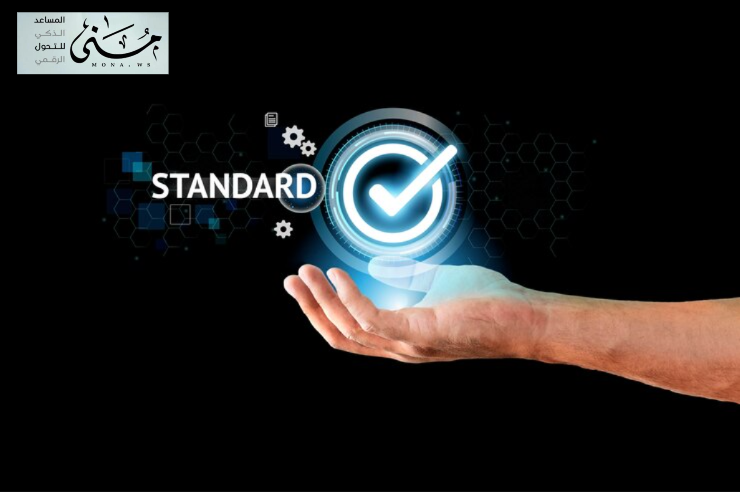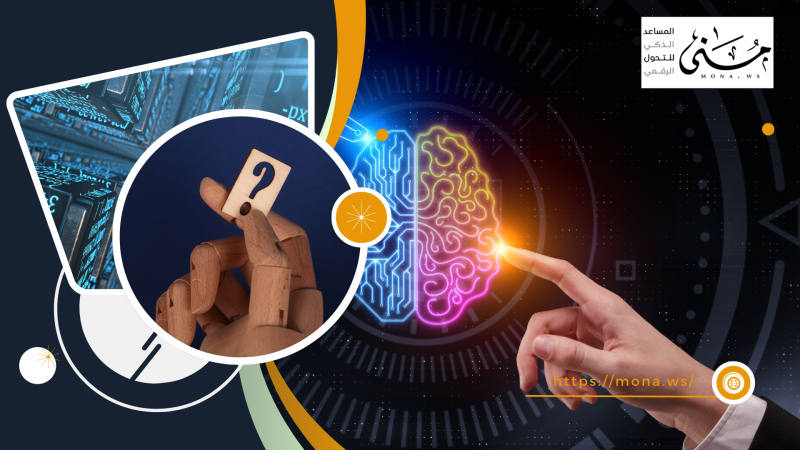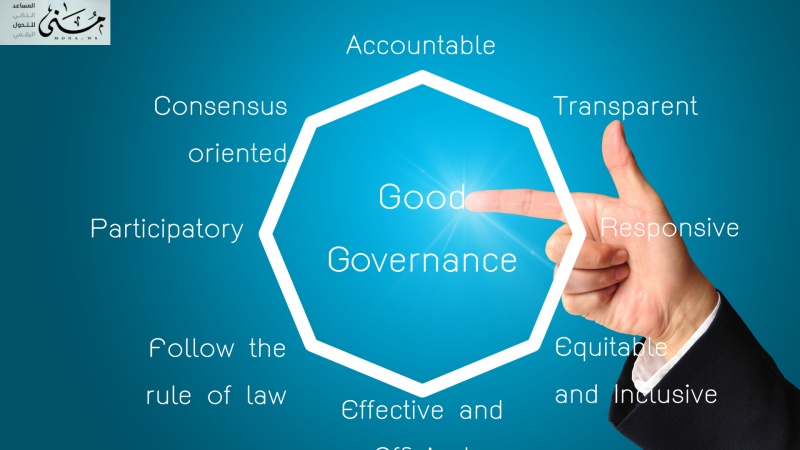What is global governance? And why is it important?
In our contemporary world, challenges that transcend national borders are increasing, such as climate change, economic crises, and global epidemics. These issues require effective international cooperation, and here the importance of global governance emerges as a framework aimed at coordinating international efforts to address these common challenges.
Definition of global governance
Global governance refers to the set of rules, institutions, and processes that regulate relations between states and other actors on the international stage. It aims to achieve cooperation and coordination in addressing issues that affect more than one state or region.
The importance of international governance stems from its ability to:
Addressing cross-border issues: Such as epidemics and climate change, which no single country can deal with alone.
Promoting international peace and security: By creating mechanisms to resolve disputes and prevent conflicts.
Support sustainable development: By coordinating efforts to achieve common global goals.
Global governance systems
Global governance consists of a set of systems and institutions that work to coordinate international efforts. The most prominent of these institutions are:
United NationsIt is considered the main international organization that includes most of the countries of the world, and works to maintain international peace and security and enhance cooperation in various fields.
World Trade Organization (WTO)It oversees the rules of trade between countries, works to settle trade disputes, and promotes free trade.
International Monetary Fund (IMF): Provides financial support and advice to countries to maintain global economic stability.
Global Health Organization (WHO): Coordinates international efforts to combat diseases and promote public health.
Global Governance Challenges
Despite the importance of international governance, it faces several challenges that hinder its effectiveness, the most prominent of which are:
Divergence of national interests:Where countries seek to achieve their own interests, which may hinder international cooperation.
Lack of resourcesInternational institutions may suffer from a lack of funding and resources to carry out their missions effectively.
Geopolitical changesShifts in the global balance of power affect the effectiveness of international governance.
Global Governance Models in History
History has witnessed several models of global governance, where countries sought to establish institutions and mechanisms for international cooperation. The most prominent of these models are:
League of NationsIt was established after World War I with the aim of preventing wars and promoting international cooperation, but it failed to achieve its goals, leading to the outbreak of World War II.
United NationsIt was established after World War II to replace the League of Nations, and it succeeded in achieving some of its goals in the areas of peacekeeping and human rights.
These models demonstrate the ongoing efforts of the international community to build effective global governance systems. As global challenges persist, strengthening international governance becomes imperative. This includes reforming international institutions to be more representative and effective, enhancing cooperation between states and non-state actors, and developing new mechanisms to address emerging issues.
Principles of Global Governance
International governance is based on a set of basic principles that ensure its effectiveness and fairness, the most prominent of which are:
Transparency: Providing accurate and timely information, which enhances trust between countries and institutions.
Accountability: Taking responsibility for decisions and actions taken, with the possibility of holding the relevant parties accountable.
Participation: Encourage the participation of all stakeholders in the decision-making process.
Rule of law: Commitment to international laws and standards to ensure justice and equality.
The role of NGOs in global governance
NGOs play a pivotal role in global governance by:
Monitoring and Evaluation: Follow up on the implementation of international policies and agreements and submit independent reports on them.
Advocacy and awareness:Raising awareness of global issues and lobbying for just and sustainable policies.
Providing assistance and services: Providing support and assistance in areas where governments may be unable to meet.
Impact of globalization on global governance
Globalization has complicated the process of international governance by:
Increased interconnectedness between countries:Which makes local decisions have global impacts.
New challenges: Such as cybercrimes and the spread of epidemics, which require intensive international cooperation.
Abilities disparitySome countries benefit more from globalization than others, creating challenges in achieving justice and equality.
Systems that serve global governance
There are many systems specialized in document management and electronic archiving, which serve global governance. Here are some of these systems:
Fikra Program for Electronic Archiving
Fikra Program is considered one of the leading solutions in the field of archiving files and documents in the Arab world. It is characterized by a simple and easy-to-use interface, and allows institutions to save documents and papers digitally, in addition to managing and tracking incoming and outgoing transactions between users. Doc Suite (Docsite)
This system provides integrated solutions for document management, including indexing and searching, electronic and digital signatures, and support for integration with other systems without the need for additional development. It is a document management system that fully supports the Arabic language, and is specifically designed to provide features such as workflow management and design, integration with Microsoft Office applications, and advanced search and retrieval capabilities.
The relationship of document management systems to global governance:
Document management systems play a vital role in enhancing governance in the world by:
Promote transparencyThese systems enable organizations to store documents and information in an organized and secure manner, making them easy to access when needed, and enhancing transparency in administrative processes.
Support accountabilityBy providing accurate and up-to-date records of documents and transactions, these systems enable the tracking of decisions and actions, supporting the principle of accountability within organizations.
Improve efficiencyIt contributes to accelerating the search and retrieval processes of documents, and reducing the time and effort spent in managing information, which leads to improving work efficiency.
Compliance with international standardsThese systems help organizations comply with international standards and laws related to information management and preservation, which supports good governance.
In short, document management systems are essential tools in achieving global governance principles, ensuring effective management of information and enhancing transparency and accountability within organizations.
Challenges and Criticisms of Global Governance
Despite the importance of international governance in coordinating international efforts to address common challenges, it faces several criticisms and challenges that affect its effectiveness:
Lack of central executive authorityGlobal governance lacks a central executive authority capable of enforcing international decisions and treaties, which results in it relying on voluntary state commitment, which can be uneven.
Power disparity between countriesEconomic and political gaps between countries affect the decision-making process, as powerful countries have greater influence in international institutions, which may marginalize the interests of developing countries.
Cultural and social challengesValues and cultures vary between countries, making it difficult to reach consensus on some sensitive issues, such as human rights or environmental standards.
Lack of transparency and accountabilitySome international institutions are criticized for their lack of transparency in their operations and the absence of effective accountability mechanisms, which leads to a lack of trust in them by the people.
Limited influence of civil societyDespite the increasing role of NGOs, their influence in the international decision-making process remains limited, which reduces the comprehensiveness of global governance.
Examples of these challenges:
Climate change issueDespite international agreements such as the Paris Climate Agreement, the absence of mandatory implementation mechanisms has led to countries’ varying commitments to reducing carbon emissions.
Global health crisesThe COVID-19 pandemic has highlighted the challenges of international coordination, with national responses influenced by political and economic interests, impacting the effectiveness of global efforts to combat the pandemic.
By addressing these challenges, the effectiveness of global governance can be enhanced and its goals can be achieved in the face of common challenges.
Global governance is essential to global stability and progress. By strengthening international cooperation and developing effective systems, we can address common challenges and build a more prosperous future for all.
 الحوكمة العالمية أساسًا لتحقيق الاستقرار والتقدم في العالم
الحوكمة العالمية أساسًا لتحقيق الاستقرار والتقدم في العالم











Comments
Add New Comment